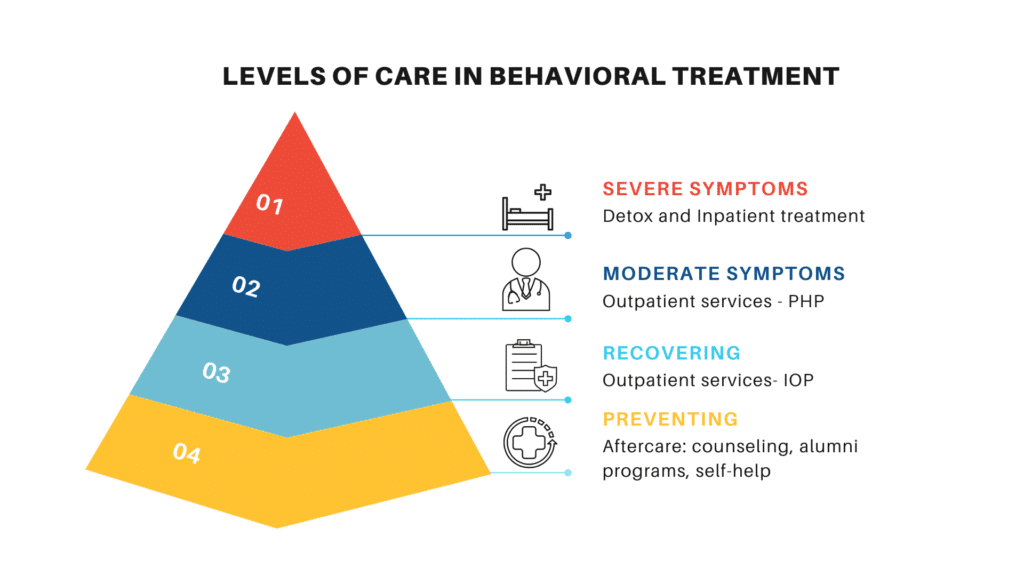Therapist vs. Psychiatrist vs. Psychologist: Who Does What?

When you finally decide, “I need help,” it can feel like you’ve walked into a maze of titles: Therapist. Psychiatrist. Psychologist. Who do I actually need to see? You’re not alone in feeling confused. The good news: you don’t have to get the titles perfect to start getting better. But understanding the basics can make the process feel less intimidating—and help you see how Santa Clarita Behavioral Health (SCBH) builds the right team around you, rather than asking you to figure it out alone. So, Therapist vs. Psychiatrist vs. Psychologist: Who Does What?
Why Titles Matter (Just Enough to Be Helpful)
All three—therapist, psychiatrist, psychologist—are mental health professionals. They all help people who are struggling with things like anxiety, depression, trauma, and substance use. HelpGuide
But they have different training and roles, especially around:
- Medication (who can prescribe it)
- Testing and assessment
- Day-to-day therapy and support
Once you know those differences, it’s much easier to understand how a place like Santa Clarita Behavioral Health can coordinate your care.
What Is a Psychiatrist?
A psychiatrist is a medical doctor (MD or DO) who specializes in mental health. They go to medical school, complete a psychiatry residency, and are licensed to prescribe medication. American Psychiatric Association
In practice, psychiatrists:
- Assess and diagnose mental health conditions
- Prescribe and adjust medications like antidepressants, mood stabilizers, and anti-anxiety medications
- May also offer psychotherapy, although many focus primarily on medication management, especially for more complex conditions
The American Psychiatric Association describes psychiatrists as physicians trained to evaluate both the mental and physical aspects of psychological problems, and to use medications and other medical treatments alongside therapy when needed.
How this shows up at Santa Clarita Behavioral Health
At SCBH, medication isn’t an afterthought—it’s integrated into care through a dedicated Medication Management service. The site describes a psychiatric team that:
- Carefully assesses symptoms, stressors, physical health, sleep, and lifestyle
- Tailors medication choices to the individual
- Coordinates meds with therapies like CBT, DBT, ACT, psychodynamic work, and group support.
So if you need (or might need) medication, you’re not bouncing between disconnected providers. The psychiatrist and therapists are working in the same treatment environment.
What Is a Psychologist?
A psychologist typically holds a doctoral degree in psychology (PhD or PsyD) and is trained in mental health assessment, diagnosis, and psychotherapy. Psychology.org
Educational and professional bodies highlight that psychologists:
- Complete years of graduate training in human behavior, emotion, and mental health
- Can provide evidence-based psychotherapy
- Are often trained to conduct psychological testing and in-depth assessments (for example, clarifying complex diagnoses, learning issues, or personality patterns)
In most U.S. states, including California, psychologists do not prescribe medication; they collaborate with physicians or psychiatrists when medication is part of the plan.
At a program like SCBH, psychologists (or psychologists in similar roles) may be more involved in diagnostic clarification and specialized therapy approaches, particularly for complex conditions like trauma, OCD, or personality disorders—exactly the kinds of issues SCBH’s treatment pages focus on.
What Is a Therapist?
“Therapist” is a broader, more everyday word. It usually refers to licensed professionals such as:
- Licensed Clinical Social Workers (LCSWs)
- Licensed Marriage and Family Therapists (LMFTs)
- Licensed Professional Clinical Counselors (LPCCs/LPCs), and similar roles
They typically have a master’s degree plus supervised clinical training and licensure. Public health and psychology resources summarize their role this way: therapists provide talk therapy and skills-based treatment for mental, emotional, and behavioral health issues, but they don’t prescribe medication.
In real life, therapists are often:
- The people you see for weekly individual therapy
- The ones leading group therapy and teaching tools like CBT, DBT, and grounding skills
- The clinicians who walk with you week after week while you practice new patterns and process what’s happening in your life
Therapists at Santa Clarita Behavioral Health
SCBH’s Services page makes it clear that therapy is at the center of care. The team offers:
- Individual and group therapy
- CBT, DBT, ACT, psychodynamic therapy, solution-focused work
- A holistic whole-person approach that can include somatic work, art therapy, mindfulness, and more.
Licensed therapists lead many of these services, both in person and via Online Therapy, so you can access care from home or work if needed.
A Simple Way to Remember the Difference
Very loosely:
- Psychiatrist – a medical doctor who focuses on mental health and can prescribe medication, often managing complex psychiatric conditions.
- Psychologist – a doctoral-level mental health professional who provides psychotherapy and specialized assessment, but usually doesn’t prescribe meds.
- Therapist – a licensed mental health clinician (often master’s-level) who provides day-to-day therapy and skills-based support for many mental health and addiction issues.
There’s overlap, but if you remember meds = psychiatry, testing/advanced assessment = psychology, weekly therapy = therapists, you’re already ahead of the game.
How Santa Clarita Behavioral Health Puts It All Together
The real magic isn’t in choosing one title—it’s in how they work together around you.
Santa Clarita Behavioral Health is built around coordinated, outpatient behavioral health care for mental health, addiction, and co-occurring disorders, through Partial Hospitalization (PHP) and Intensive Outpatient Programs (IOP).
Here’s what that looks like in practice:
1. A multidisciplinary clinical team
When you enroll in one of Our Programs—PHP, IOP, or the Alumni Program—you’re not matched to just a therapist or just a psychiatrist. You’re stepping into a team-based model that can include:
- Therapists for individual and group therapy (CBT, DBT, trauma work, etc.)
- A psychiatric team for Medication Management and diagnostic clarification
- Case management for practical support—appointments, resources, independent living skills
Each of these roles contributes pieces of the puzzle so you don’t have to coordinate everything on your own.
2. Matching level of care to what you’re going through
SCBH doesn’t just ask, “Do you need a psychiatrist or a therapist?” Instead, they look at how much structure and support you need right now:
- PHP – a more intensive, day-program level of care if symptoms or crises are high but you don’t need 24/7 inpatient hospitalization.
- IOP – multi-day per week therapy that allows you to keep some work, school, or family responsibilities while getting robust support.
Within those frameworks, your therapist, psychiatric provider, and the rest of the team can adjust the mix of therapy, skills work, and medication over time.
3. In-person and telehealth options
If you’re in or near Santa Clarita, you can come on-site for groups and individual sessions. If your schedule, transportation, or health makes that harder, SCBH’s Online Therapy option connects you to therapists and psychiatry through secure video.
That means you don’t have to choose between “real” care and your real life.

How to Decide Where to Start
You don’t have to get it perfect—but here’s a simple way to think about it:
- If you want to talk about what’s going on, learn coping skills, work through trauma, or get support for anxiety and depression → treatment will usually start with a therapist inside a structured program.
- If you suspect you may need medication, or what you’re dealing with feels intense and persistent (for example, severe mood swings, psychosis, or long-standing insomnia) → it’s helpful to have a psychiatric assessment as part of your care.
- If your symptoms are complicated and you’ve tried treatment before, a psychologist’s deeper assessment and specialized therapy may be recommended along the way.
At Santa Clarita Behavioral Health, these aren’t either/or choices. They’re pieces of one integrated plan.
When It Might Be Time to Reach Out
It may be time to contact SCBH if:
- Your anxiety, depression, trauma, or substance use is starting to affect work, school, or relationships
- You’ve tried to push through on your own, but things aren’t improving
- You’re feeling overwhelmed and want a structured, professional space to get back on solid ground
You don’t have to know whether your main problem is “psychological” or “psychiatric.” You just have to say, “I need help.”
Take the Next Step with Santa Clarita Behavioral Health
If you’re in the Santa Clarita or greater Los Angeles area—and even if you need virtual care across California—Santa Clarita Behavioral Health can help you figure out who should be involved in your care and what level of support makes sense.
You can:
- Explore Our Programs (PHP, IOP, Alumni) to see how structured outpatient care is set up.
- Review Our Services to understand the therapies and supports available—from CBT and DBT to holistic, whole-person approaches.
- Learn how Online Therapy and Medication Management fit into care if you need flexibility or medication support.
From there, you can call or request a consultation to talk through your situation with the admissions team and clinical staff.
You don’t have to decide on “therapist vs. psychiatrist vs. psychologist” by yourself.
At Santa Clarita Behavioral Health, you get a team that can help you sort it out—so you can focus on feeling better, not decoding titles.


